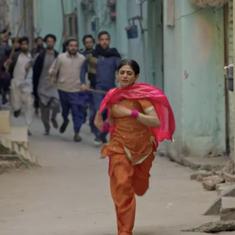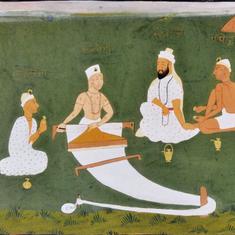‘Blatantly absurd’: ADR on EC not including Aadhaar as proof for Bihar voter roll revision
Any of the 11 documents that the poll panel has stated could be used to prove eligibility ‘are equally susceptible’ to being forged, said the non-profit.

The Association for Democratic Reforms on Saturday described the Election Commission’s decision not to Aadhaar card a standalone valid document for the revision of electoral rolls in Bihar as “blatantly absurd”, reported The Hindu.
The non-profit organisation is one of the petitioners against the exercise. The statement was part of a rejoined filed in the Supreme Court in response to the poll panel’s affidavit in the matter.
On Monday, the Election Commission said that the Aadhaar does not “constitute proof of Indian citizenship” and could be easily forged.
The affidavit had come in response to the Supreme Court’s July 10 order that asked the Election Commission to consider Aadhaar cards, voter identity cards and ration cards as valid proof for the electoral roll revision exercise “in the interest of justice”.
On Saturday, the Association for Democratic Reforms told the Supreme Court that any of the 11 documents that the poll panel has stated could be used to prove eligibility “are equally susceptible to being procured on the basis of fake or false documentation”, reported The Hindu.
“The fact that Aadhar card is one of the documents accepted for obtaining Permanent Residence Certificate, other backward castes, scheduled castes or scheduled tribes certificate and for passport – makes ECI’s rejection of Aadhar (which is most widely held document) under the instant SIR [special intensive revision] order patently absurd,” the organisation was quoted as stating by Bar and Bench.
The non-profit also claimed that no procedure has been defined for the verification of the supporting documents submitted by the voters. This gives the electoral registration officers “broad and unchecked discretion” that could result in disenfranchisement of the voters in Bihar, the organisation further claimed.
It told the court that each electoral registration officer has been tasked with handling the enumeration forms of more than three lakh persons. This makes it “humanly impossible for them” to conduct the process reasonably, the organisation told the Supreme court.
It alleged that the manner in which the exercise was being carried out was a “grave fraud” on the state’s voters, reported The Indian Express.
“Many voters have reported that their forms have been submitted online, despite never having met with any BLOs [block level officers] or signed any documents,” the Association for Democratic Reforms was quoted as saying by Live Law. “Forms of even dead individuals have been reported to have been submitted.”
According to the Election Commission’s guidelines, the block level officers are required to visit each home and give a voter two enumeration forms.
The organisation added: “The above points to the flawed manner in which the current SIR of electoral rolls is being conducted, where the integrity of the electoral rolls is compromised, potentially affecting millions of voters and undermining the democratic process.”
Also read: EC began Bihar roll revision without data and shifted goalposts midway, court document shows
The revision of the electoral rolls in Bihar was announced by the Election Commission on June 24.
As part of the exercise, persons whose names were not on the 2003 voter list will need to submit proof of eligibility to vote. This means that 2.9 crore out of the state’s 7.8 crore voters – or about 37% of the electors – will have to submit documentary evidence.
Voters born before July 1, 1987, must show proof of their date and place of birth, while those born between July 1, 1987, and December 2, 2004, must also submit documents establishing the date and place of birth of one of their parents. Those born after December 2, 2004, will need proof of date of birth for themselves and both parents.
If the officers are satisfied with the details provided, the voters will be re-enrolled to a new voter list by electoral registration officers. If not, they will be removed from the voter lists.
A draft roll will be published on August 1 and the final roll will be out on September 30.
On July 2, eleven INDIA bloc parties told the Election Commission that the special intensive revision of Bihar’s electoral rolls risked disenfranchising more than 2.5 crore voters, as they may not be able to produce the necessary documents.
On July 5, the Association for Democratic Reforms filed a petition in the Supreme Court against the special intensive revision of Bihar’s electoral rolls, saying that the order is arbitrary and can disenfranchise millions of voters.
The non-profit organisation sought the quashing of the order and stated that it imposed fresh documentation requirements and shifted the burden of proof from the state to the citizen.
Chief Election Commissioner Gyanesh Kumar on July 6 defended the exercise, claiming that the exercise had to be carried out as no one was satisfied with the current voter rolls.
The poll panel stated on Monday that there was no violation of law or fundamental rights of any voter in the electoral roll revision process.
“The SIR [special intensive revision’ adds to the purity of elections by weeding out inelgible persons from electoral rolls,” said the Election Commission.
Also read:
The curious case of a missing Election Commission order on 2003 voter list revision in Bihar
Bihar voter roll revision: Why having to prove you are an Indian citizen is a nightmare









